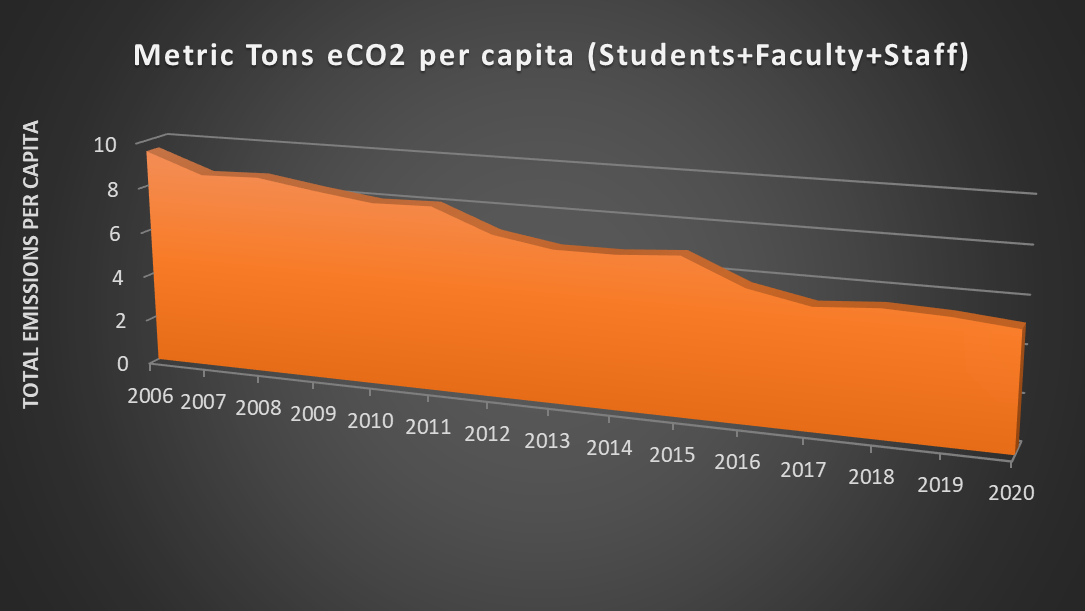UofL Carbon Emissions Continue to Fall
In accordance with our Carbon Commitment and membership in the Climate Leadership Network, on April 29, 2020, the University of Louisville released our 2019 Greenhouse Gas Emissions Report.
The good news is that our emissions are trending in the right direction (1.7% reduction from 2018).
The bad news is that UofL remains off track for achieving our first milestone goal of a 20% emissions reduction from our 2008 baseline by 2020: we remain behind with a 15.9% overall reduction. Nor are we on track to achieving our goal of sourcing 20% of our energy from renewables by 2020: we are at just 4.27% renewable energy.

In 2019, we stood at an 15.8% reduction from the 2008 baseline. UofL decreased emissions by 32,781 metric tons of CO2 equivalent per year since 2008. According to the EPA's greenhouse gas equivalencies calculator, this translates to:
- Taking 7,082 cars off the road, or 81,342,432 miles of driving, or 3,688,646 gallons of gas burned;
- 11,150 tons (or 1,593 garbage trucks) of waste recycled instead of landfilled;
- Emission from 3,783 average U.S. homes’ annual energy use;
- 180 rail cars worth of coal burned;
- 1,245,337 incandescent lamps switched to LEDs; or the
- Carbon sequestered by 42,810 acres of U.S. forests in one year (or 542,041 tree seedlings grown for 10 years).
More impressively, we have managed to reduce our carbon emissions, even as we continue to grow in terms of physical size, campus population, and budgetary expenditures.
Per sq. ft. |
Per Capita |
Per Operating |
|
Emissions Reduction 2008-2019 |
33.7% |
22.99% |
28.7% |

To get back on track, the most important steps that UofL needs to take in the near-term are:
- Invest in large-scale renewable energy, behavior change, and energy efficiency measures at the scale of our $52M 2009-2017 three-phase performance contract.
- Reduce driving through a Transportation Demand Management Plan that invests in and incentivizes alternatives (including online classes & working from home), caps parking, and transitions UofL from subsidizing annual parking permits to market-rate, pay-per-use parking that subsidizes alternatives.
- Explore carbon offsetting and sequestration solutions that would benefit our campus & community.




